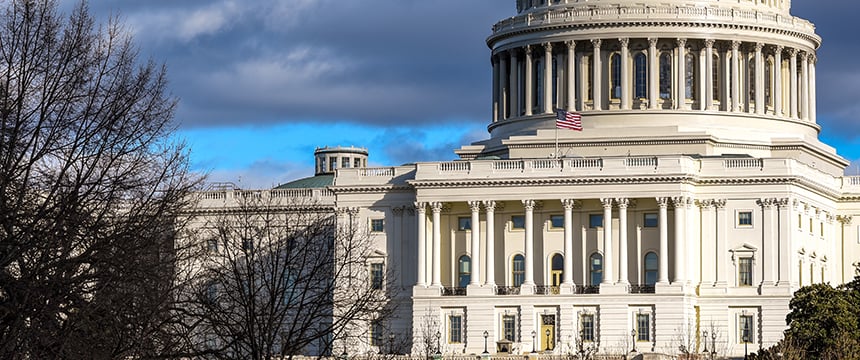New State Antitrust Enforcement Venue Act Gives State Attorneys General Venue Preference in Antitrust Litigation

On December 29, 2022, President Biden signed the Consolidated Appropriations Act of 2023, an omnibus spending bill that also contained several pieces of key antitrust legislation. In particular, the law included a bill guaranteeing state attorneys general venue preference where they litigate antitrust cases. Although much of the antitrust focus of the omnibus bill has focused on the increase in merger filing fees, the State Antitrust Enforcement Venue Act (the State AG Venue Act or the Act) is equally noteworthy.
Overview of the State AG Venue Act
Complex antitrust litigation often involves numerous similar cases filed by both government enforcers and private plaintiffs in multiple jurisdictions. Parties frequently seek to transfer these cases to a single forum through the Judicial Panel on Multidistrict Litigation (JPML) process. The JPML process consolidates these similar cases into a single multidistrict litigation (MDL) in a single court for pre-trial proceedings, which typically achieves various efficiencies for the courts and the parties.
Before the Act’s passage, the law treated state antitrust enforcement actions no differently than private cases. As a practical result, this meant parties could request that the JPML transfer and consolidate state antitrust lawsuits filed in the federal court of their choosing with other private lawsuits without the consent, and over the objection, of the state attorneys general. The Act ends that practice and allows state attorneys general to remain in their jurisdiction of choice when filing antitrust actions.
Federal antitrust enforcers have long enjoyed this MDL exemption and right to venue selection. Enforcers generally view the MDL exemption as an advantage, not only for being able to select the forum of their choice but also because it permits their enforcement actions to proceed separate from the complex MDL process. State attorneys general have touted the Act as a game changer for their antitrust enforcement efforts, as it will give them more control over where they bring and litigate antitrust cases. With the change in law, state antitrust enforcers are now afforded the same venue deference as federal enforcers in deciding where to prosecute antitrust cases.
The State AG Venue Act’s Journey to Law
A group of bipartisan representatives and senators introduced versions of the State AG Venue Act in bill form, in both congressional chambers, in May 2021. The state attorneys general strongly supported the bill and submitted a letter through the National Association of Attorneys General, signed by 52 state and territory attorneys general. After the judiciary committees of both chambers passed these early bills in June and September 2021, little progress occurred. The Chair of the Federal Trade Commission, Lina Khan, came out in support the bill, as well as Assistant Attorney General for the Antitrust Division at the U.S. Department of Justice, Jonathan Kanter.
The Senate unanimously passed the bill, though the June 2022 version of the bill struck the provision from the original version that would have applied the bill retroactively to pending cases. In September 2022, the House passed a package that included the venue legislation as well as the Merger Filing Fee Modernization Act and the Foreign Merger Subsidy Disclosure Act. Despite some uncertainty over its ultimate passage, the Senate included the three antitrust bills in the 2023 omnibus spending package at the end of the lame duck session, voting to pass the package on December 22, 2022. President Biden then signed the Act into law on December 29, 2022.
The Impact of the State AG Venue Act
The level of support shown for the State AG Venue Act across Congress and the federal agencies is not surprising given the increased focus over the past few years — at all levels of government — on aggressive antitrust enforcement. Whether this Act will lead to better, stronger, or more prolific antitrust enforcement by the states remains to be seen. Regardless, passage of the State AG Venue Act means companies face at least two possible outcomes. First, even if the state attorneys general cases are exempted from the JPML transfer and consolidation process, it is possible that more cases may end up consolidated via the JPML in the states’ chosen forum if MDL private parties prefer to litigate in a single forum. This may provide a perceived “home court” advantage to plaintiffs (private and public alike). Alternatively, it is also likely that parties face a risk of litigating antitrust claims in multiple forums if state attorneys general file separate actions in their own respective states or cases are transferred to other jurisdictions through the JPML process. That comes with the risk of inconsistent rulings and added burden and inconvenience for defendants. Either way, this will be an area to watch as state attorneys general file new antitrust litigation cases following the passage of State AG Venue Act.

